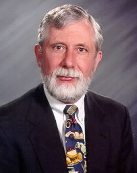John Pestle and I will once again be presenting our very popular program, Current Issues in Cell Tower Leases and Lease Buyouts. If you read through this entire post, you’ll find out how to get 20% off the registration fee!
This live-via-the-web program, presented through Lorman Education Services, will be presented twice in June: First on June 4, 2013, and second on June 20, 2013. Both presentations will span from 1:00 pm – 2:30 pm Eastern Time (10:00 a.m. – 11:30 a.m. Pacific Time). If you live in Arizona or some part of Indiana, you’ll have to figure out the conference time for yourself.
Attorneys will get 1.5 hours of CLE credit (subject to your state Bar rules). AICP, CC, ENG, and PMI credits may be available, as well.
Now we move on to the presentation description!
The wireless industry has built more than 250,000 cell sites in the United States in the past 20 years. But many more cell sites are needed as i-things, Droids and the like strain existing wireless network capacity. New cell sites and significant modifications to existing cell sites will also be needed to meet the government’s goal of using wireless to increase broadband speeds and coverage. At the same time, ‘tower management’ companies are offering to buy existing cell leases and lease sites for large sums of money.
This live audio conference, supplemented with lots of of written materials, will help level the playing field by providing private and municipal property owners with the expertise of two faculty members highly experienced in cell tower leases and buyouts. This will help property owners who usually are negotiating such leases or buyouts for the first and only time, while the companies have teams of lawyers who work exclusively on such matters.
We will focus on key business issues in wireless site leases, including lease rates, who gets the revenues from additional antennas or carriers being co-located at a site, major rent increases for renewals and avoiding lease terms which can restrict or prevent an owner’s use or development of its own property – – or trigger a mortgage default. An emphasis will be on the industry specific elements and terms of modern cell site leases, as well as why property owners can achieve very large rent increases on the renewal or extension of existing leases. Comparable issues on lease buyouts will be addressed, as well as why buyouts often are not good deals financially. You will be better able to identify and resolve issues that are unique to wireless leases and buyouts, including what municipalities can include in a lease that cannot be included in a government-issued permit, site location and value, lease term and terminations, access requirements, interference regulation and mitigation, design and camouflage, and radio frequency emissions issues.
Learning Objectives:
- You will be able to explain the revenues the property owner receives, and discuss the common elements of private wireless site leases on developed and undeveloped land.
- You will be able to identify practice pointers, including key concepts, for owners of private property and their attorneys, as well as municipalities and municipal attorneys.
- You will be able to discuss the basics of wireless technology and the real property, technical and technology issues that drive a wireless carrier’s siting and leasing process.
- You will be able to review insurance and indemnity provisions to protect the property owner.
Agenda
- Lease Rates, and How Property Owners Can Increase Revenues If Another Provider Adds Its Antenna to the Tower
- How Rents Can by Greatly Increased at Lease Renewal, and How to Avoid Losing Such Increases
- Avoiding Lease Terms Which Limit or Prevent the Owner’s Use and Development of Its Property or May Trigger a Mortgage Default
- Why Leases That Put Antennas on Buildings Are More Complicated Than Leases for Stand-Alone Towers, What Different Lease Terms Are Needed
- Buyout Offers for Cell Tower Leases and Lease Sites, How to Evaluate Them, Key Legal Considerations
- Issues Unique to States, Municipalities, Units of Government as Cell Tower Lessors
- Camouflage Options for Property Owners, to Protect the Value of Their Property
- Provisions Allowing the Property Owner to Relocate the Tower, If Necessary
- Backup Power and Generators, Key Issues and Concerns
- Insurance and Indemnity Provisions to Protect the Property Owner
- Restrictions on Changes in Who Owns the Tower to Protect the Property Owner
- Protecting the Owner If the Provider or Buyout Company Goes Bankrupt
Faculty
 John W. Pestle, Esq., Varnum
John W. Pestle, Esq., Varnum
- Chair of the Telecommunications Group at the Varnum LLP law firm
- For more than 15 years has represented property owners (companies, municipalities, schools, churches, farms, etc.) on cell tower leases, amendments and buyouts
- Provides model cell tower leases, currently to more than 500 organizations nationwide
- For more than 25 years has represented clients on cable, telecommunications and other utility matters
- Represented municipalities on 1996 statute adding cell tower zoning provisions to Federal law, received Member of the Year award from national municipal group for same
- Represented National League of Cities and other municipal groups opposing Federal Communications Commission limits on local zoning, permitting for cellular and broadcast towers
- Received Special Award of Merit from the Michigan Municipal League for his work representing municipalities on cable and telecommunications matters
- Past chair of both the Municipal Lawyers Section of the State Bar of Michigan and the Legal Section of the American Public Power Association
- Held FCC First Class Radio Telephone license to work on radio, TV and ship radar transmitters
- Admitted to practice in Michigan and Arizona
- Graduate, Harvard College, Yale Graduate School and the University of Michigan Law School
- Can be contacted at 616-336-6000 , ext. 6725, or jwpestle@varnumlaw.com
- Heads the Telecom Law Firm, P.C. based in Los Angeles
- Radio frequency engineer, and an attorney admitted to practice in California and New Mexico
- Concentrates on law and technology issues of broadband and wireless telecommunications
- Wireless siting planner and radio frequency engineer, and wireless lecturer for hundreds of local governments throughout the United States for 18 years
- Testifying expert or trial consultant in wireless cases
- Published feature articles on wireless tower siting in government and wireless industry journals
- Co-wrote and edited the FCC’s publication, A Local Government Official’s Guide to Transmitting Antenna RF Emission Safety: Rules, Procedures and Practical Guidance
- National member of NATOA for more than 20 years and its only twice-honored Member of the Year
- Fellow member of the Society of Cable Telecommunication Engineers, U.K. Society, and an elected senior member of the Society of Cable Telecommunications Engineers, U.S. Society
- Licensed by the FCC, holding its highest grade licenses for commercial radiotelephone, radar and marine digital communications, as well as its highest grade amateur radio license, and licensed as a low-voltage communications contractor in California
- Can be contacted at 310-312-9900 , ext. 121, or Kramer@TelecomLawFirm.com
These Materials are Designed For…
This live audio conference is designed for attorneys, planners, directors of development, project managers, government administrators, council and board members, land use officials, public works and utilities directors, municipal government officials, engineers, architects, surveyors and real estate professionals.
Download the attached brochure for a 20% Discount Code: FULL BROCHURE IN PDF FORMAT
To register online for the June 4th lecture, click here.
To register online for the June 20th lecture, click here.
